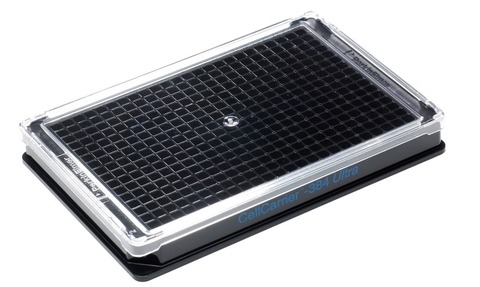
PerkinElmer has introduced its latest microplates designed to enable higher quality results in high content screening (HCS).
PerkinElmer has announced the launch of its CellCarrier Ultra 384-well microplates, designed specifically for HCS.
The improved plate design results in higher quality image data and more robust results from HCS applications - such as phenotypic screening and three-dimensional disease model studies - Perkin Elmer says.
This combination of capabilities is designed to provide researchers with the ability to obtain greater insights into disease and can help accelerate the discovery of new and more effective treatments.
The CellCarrier Ultra 384-well microplates are designed for enhanced performance in high content imaging applications where the imaging surface is critical for generating high resolution images and quality data.
The plates are black and precisely engineered to have an extremely flat surface for efficient imaging.
They are made using cyclic olefin, a plastic that has glass-like optical properties, to provide a clearer image.
Additional features of the microplates include better well access when using water immersion, high numerical aperture objectives with an ultra-low plate bottom, an improved lid design that reduces evaporation, corner spacers that avoid damaging the imaging surface when stacking, and a choice of different coatings to suit specific applications.




